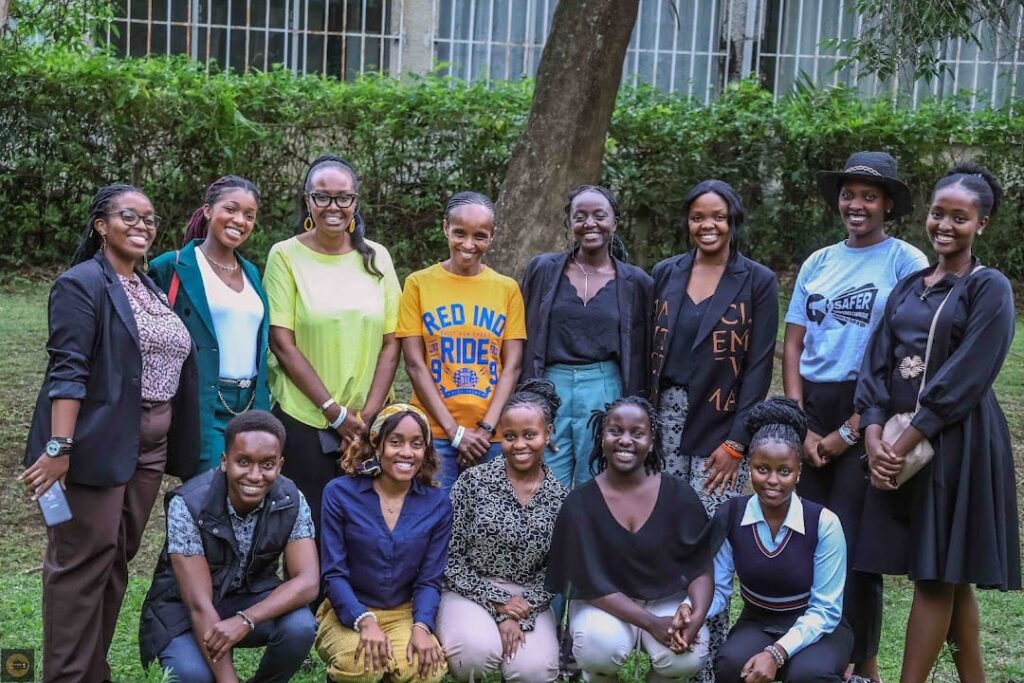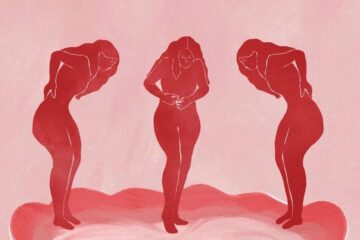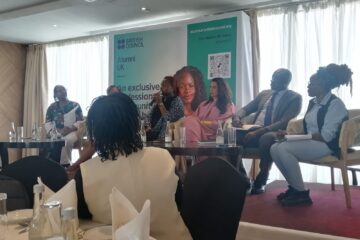In order to improve the quality of education and access to good health at the tertiary
institution of JKUAT, a group of women known as “Ladies Assemble” convened under the
office of the deputy speaker to establish a pad drive initiative program. This initiative will
allow female students to access sanitary products as well as menstrual education , thereby
reducing the distraction from their studies that is caused by the inability to access sanitary
products in school and finding the right solutions towards the four menstrual disorders. This
initiative aims to counter SDG 4 and SDG 6 that are quality education and clean water and
sanitation, respectively, and ensure sustainability by handing it over to the gender office
through the office of the JKUSA (Jomo Kenyatta University of Agriculture and Technology
Students Association).
“Access to sanitary towels is not just a matter of hygiene; it’s a matter of dignity and
opportunity. Without them, girls and women are held back from reaching their full
potential, missing out on education, work, and a life free from shame.” Anonymous.
Introduction and background.

Period poverty significantly affects female students in Kenya and other parts of Africa,
leading to severe educational and health implications. This issue is primarily driven by
economic factors, cultural stigma, and inadequate access to menstrual hygiene products.
Approximately 65% of women and girls in Kenya cannot afford sanitary pads, which forces
many to resort to unsanitary alternatives like newspapers, clothes, or cheap sanitary towels
that have health implications. This lack of access leads to girls missing an average of four
days of school each month, equating to about 20% of the school year.
This can be attributed to the high poverty rates and inflation. In Kenya, around 36% of the
population lives on less than $1.90 per day, limiting families’ ability to provide menstrual
products. The cost of sanitary pads can consume a significant portion of a low-income
family’s daily earnings; for example, a packet may cost about $1, which is nearly a full day’s
wage for many. As of early 2023, the cost of sanitary pads has reportedly doubled, with
prices rising from approximately 50 Kenyan shillings (KSh) to 100 KSh per packet. Thus,
women who have heavy flow can no longer afford to stock their pads as before, resulting in
longer use that leads to infections or resulting in cheaper brands that do not meet their needs.
As young women in the university, we have seen many of our peers forced into cohabitation
with male students just to meet their basic financial needs, including buying sanitary towels.
This situation makes them vulnerable to sexual and gender-based violence and exposes them
to higher risks of HIV infection, unplanned pregnancies, and, in some cases, unsafe abortions,
which can lead to serious health complications and even death.
Many of these young women end up deferring their studies or becoming single mothers at a
young age. These women are in university to further their education, yet they often miss
classes or go through emotional and psychological turmoil for several days to a week each
month due to a lack of access to menstrual products.
This is a problem their male counterparts don’t have to face, yet women are still expected to
achieve the same academic results. This only deepens the existing gender inequality.
However, we believe that this is a collective problem and not just a gender issue. Calling all
students who are involved in this initiative will facilitate improved collaboration and improve
sustainability. This is why we humbly request your assistance in achieving this goal, as we
understand the role of administration in amplifying students’ voices and needs. It will be of
overall benefit to the institution as a whole in bringing out the values that this institution
believes in, as well as conducting a holistic approach to quality education, which is rooted in
our African ancestries.
Why Should You Support?
Supporting Pad Drive is not only an investment in students’ education but also in their
health and dignity. By allowing providing sanitary pads, you can help eliminate a key
barrier to education for women. Additionally, this initiative aligns with global goals for
gender equality and the empowerment of women (SDG 5).
The cost of menstrual products may seem small, but for a university student struggling
with daily expenses, it can be the difference between attending classes and staying home.
Supporting this initiative allows you to make a tangible impact on the lives of female students
and help foster a more equitable educational environment in Kenya.
Article 22 of the Constitution, read together with Articles 26, 27, 28, and 43, guarantees
the rights to life, human dignity, health, and education. However, it has failed to ensure
that women and girls, especially those in universities, have consistent access to free sanitary
pads. While primary and secondary schoolgirls receive some support, university students are
left behind. As students, we must step up to bridge this gap and fundraise for our peers who
cannot afford sanitary towels.
Objectives of the Activity.


